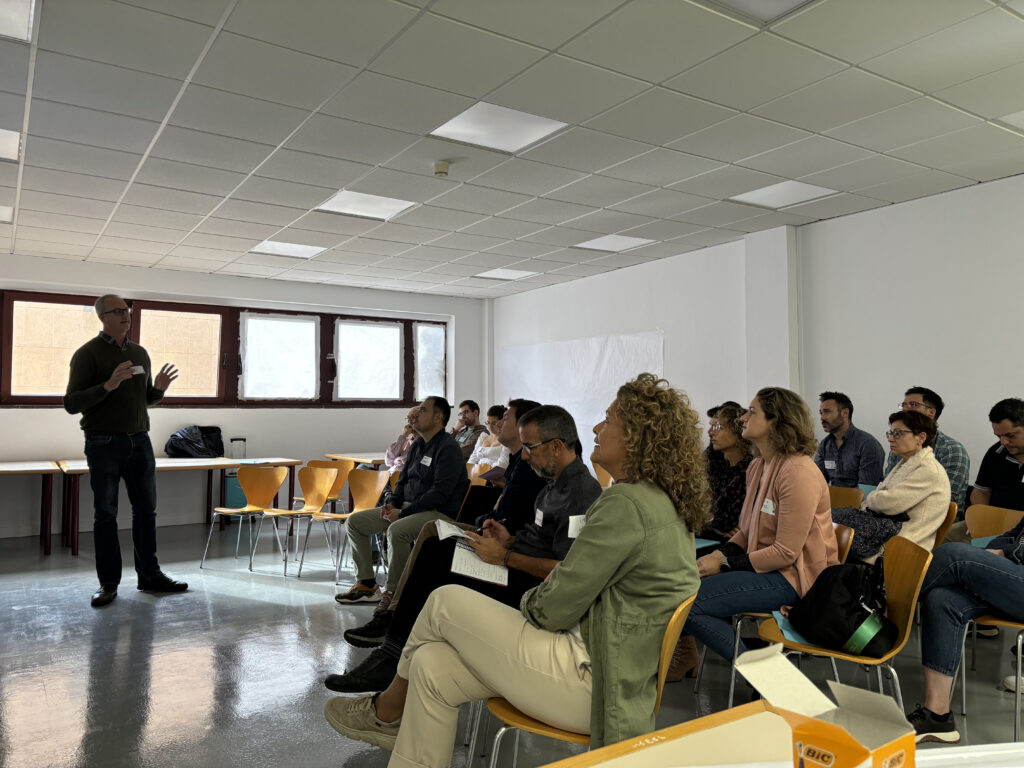
Canary Islands Pilot – First Focus Group: Exploring Resilience Pathways
The First Focus Group of the Canary Islands Pilot region recently wrapped up, offering a comprehensive exploration into crucial aspects of risk perception, governance challenges, and adaptation strategies. The primary objectives revolved around conducting structured interviews within sectoral groups and collaboratively crafting future policy pathways for the region. , system definitions, challenges, and adaptation scorecards.
Main highlights:
- Engaged 15 Stakeholders Across 4 Sectors
- Hosted 3 additional Online Sessions with 6 Participating Stakeholders
- Welcomed 3 Additional Stakeholders from the Agricultural Sector
- Partnered with the Collaborative and Social Economy Chair of Universidad de La Laguna (CESCO Chair)
- Planned Detailed Interview Agendas with Sectoral Interactions for FG2
- Collaborative design of Future Policy Pathways
Key Insights: Risk Perception
First Focus Group interviews followed a methodology developed by WP4 to delve into stakeholders’ perceptions of risk, uncovering their understanding of multi-hazard scenarios, complexity, and the critical need for cooperation, knowledge sharing, research, and nature-based solutions. Governance challenges stemming from local development pressures were emphasised, complicating future resilient adaptation measures and recovery from current multi-hazard scenarios such as the recent volcanic eruption in the island of La Palma, often referred to as political adaptation. The group noted that future disaster risk management pathways tend to be influenced by past decision-making, with EU policies facing hurdles in altering historical adaptation trajectories. Management of governmental (political) risks was observed to intersect with increasing territorial risks.
Key Contributions: System Definition and Policy Pathways
The First Focus Group made significant progress in the collaborative system analysis, presenting a unified vision of current and future challenges, mapping causal relationships, and assessing system vulnerability to multi-hazards (in line with the Collaborative System Analysis Approach proposed by WP6). A comprehensive set of adaptation measures per sector was evaluated using a Resilience Scorecard (under development in WP5 and WP6). The group crafted a compelling narrative centered around the La Palma volcanic eruption, highlighting the island tourism destination concept. The Dynamic Adaptive Policy Pathways Multi-Risk Approach (DAPP-MR) was introduced, specifically tailored for touristic islands.
As insights from the stakeholders continue to unfold, MYRIAD-EU stands ready to provide valuable strategies for resilient adaptation amid evolving challenges. The collaborative efforts across sectors offer a holistic view of the intricate landscape of multi-hazard risk management.
Future efforts in the Pilots will concentrate in developing multi-hazard and multi-risk scenarios using past events in the Canary Islands, applying MYRIAD tools and concepts.
